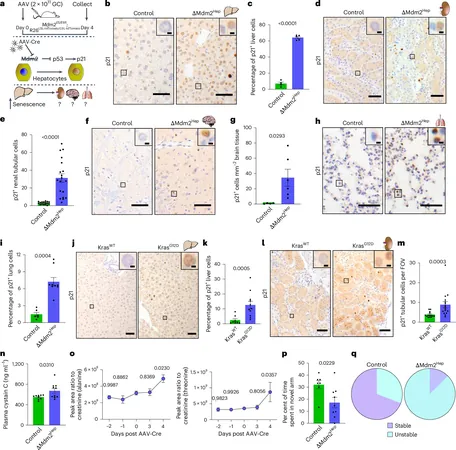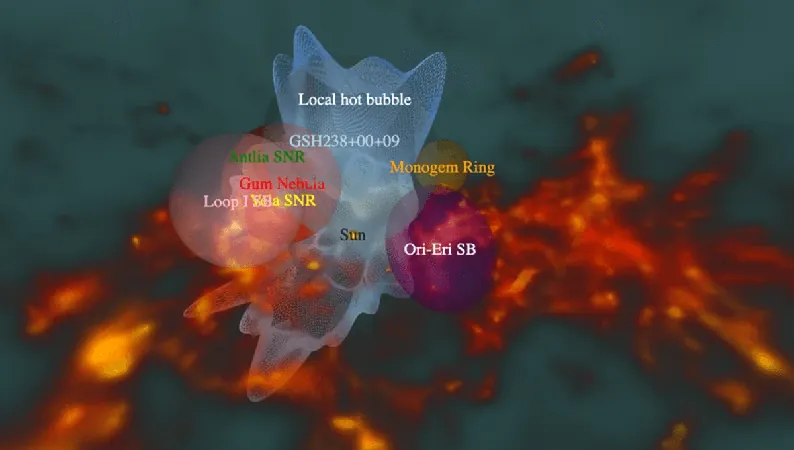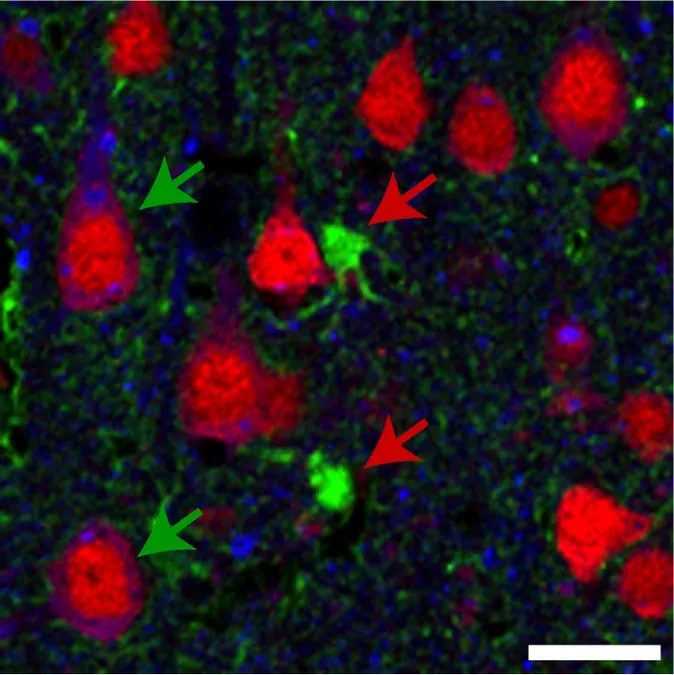
Shocking Discovery: Liver Cell Aging May Spark Multi-Organ Failure!
2024-11-13
Author: Nur
Shocking Discovery: Liver Cell Aging May Spark Multi-Organ Failure!
A groundbreaking study reveals that aging and damage to liver cells can have catastrophic consequences, potentially leading to failure in multiple organs. Conducted by a team from University College London (UCL), the University of Edinburgh, and the CRUK Scotland Institute, this research highlights the alarming connection between liver health and overall bodily function.
Published in *Nature Cell Biology*, the study offers unprecedented insights into the deterioration process of liver cells, demonstrating for the first time how severe liver damage can trigger aging-related cellular processes that impact otherwise healthy organs such as the kidneys, lungs, and even the brain.
Professor Rajiv Jalan from UCL explains, "Our research provides crucial evidence as to why significant liver injuries can lead to the failure of other vital organs and, ultimately, death." This could revolutionize our understanding of how diseases interact across different bodily systems, especially as individuals age.
As we grow older, cellular efficiency declines; this typical aging phenomenon, known as cell senescence, poses a significant health risk. Yet, it can also be initiated by acute illnesses, including viral infections or toxicities, such as those resulting from paracetamol overdose. The findings underscore that senescence in liver cells—especially after acute severe liver disease—can trigger irreversible damage that may spiral into complete organ failure.
In the experimental phase, the researchers observed mice experiencing acute liver failure; once a threshold of liver cell damage was reached, the senescent state began to manifest in other organs. The study pinpointed a critical biological pathway involving TGFβ, a protein associated with immune responses. Remarkably, when this pathway was inhibited, the spread of liver cell senescence to other organs was effectively mitigated in these mice.
The promise of future treatments that target this pathway could be transformative for patients suffering severe liver injuries. The same study highlights a strong correlation between early levels of liver cell senescence in patients and their likelihood of developing multi-organ failure or requiring a liver transplant.
The research team scrutinized liver biopsies from 34 individuals grappling with acute severe liver ailments. Alarmingly, those with elevated liver cell senescence at the outset of their disease faced a significantly heightened risk of multi-organ failure.
Currently, there are no diagnostic tools available to predict the trajectory of sudden liver failure effectively. However, monitoring liver cell senescence might change that, aiding in the identification of high-risk individuals and better guiding potential transplant decisions.
Professor Tom Bird of the University of Edinburgh emphasized the broader implications of this research, stating, "This could elucidate the mechanisms by which a localized severe condition can trigger a domino effect, resulting in systemic organ failure. Ultimately, these insights may pave the way for preventative measures not only for acute diseases but also for various age-related health issues."
Morag Foreman, Head of Discovery Research at Wellcome, expressed enthusiasm for the findings, which may transform our understanding of multi-organ failure and inspire new research pathways. "This study showcases the value of long-term research initiatives and emphasizes the need to unravel the complexities of cellular aging and its impact on health."
As scientists continue to delve into the link between liver health and overall bodily function, this pivotal study sets a foundation for future innovations in healthcare, emphasizing the importance of proactive monitoring and potential treatments that can stem the tide of multi-organ failure before it begins.


 Brasil (PT)
Brasil (PT)
 Canada (EN)
Canada (EN)
 Chile (ES)
Chile (ES)
 España (ES)
España (ES)
 France (FR)
France (FR)
 Hong Kong (EN)
Hong Kong (EN)
 Italia (IT)
Italia (IT)
 日本 (JA)
日本 (JA)
 Magyarország (HU)
Magyarország (HU)
 Norge (NO)
Norge (NO)
 Polska (PL)
Polska (PL)
 Schweiz (DE)
Schweiz (DE)
 Singapore (EN)
Singapore (EN)
 Sverige (SV)
Sverige (SV)
 Suomi (FI)
Suomi (FI)
 Türkiye (TR)
Türkiye (TR)